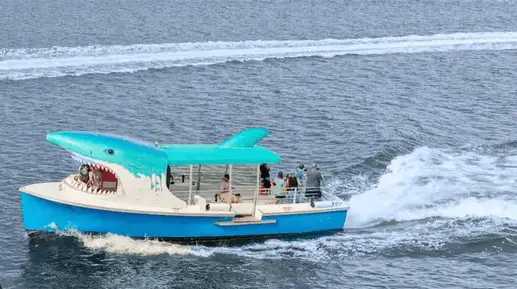Waterway rules are a set of regulations that govern the safe and efficient use of waterways such as rivers, lakes, canals, and other navigable bodies of water. These rules are put in place to ensure the smooth flow of maritime traffic, prevent accidents, and protect both humans and the environment.
Why Waterway Rules are Important
Water way rules play a crucial role in maintaining order and safety in aquatic transportation. They promote the harmonious coexistence of various vessels and activities on the water, including cargo ships, passenger boats, recreational boats, and water sports.
By following waterway rules, boat operators can minimize the risk of collisions and ensure the safety of everyone on board. These rules also help prevent damage to infrastructure, protect marine life, and preserve the natural beauty of waterways.
Types of Waterway Rules
There are several types of waterway rules that serve different purposes. Here are some common categories:
| Category | Description |
| Navigational Rules | The navigational rules are guidelines for vessel operators to determine the right of way, how to overtake, and how to navigate in different conditions. |
| Speed Limits | Speed limits vary depending on the waterway and the type of vessel. These limits help maintain safe speeds to prevent accidents and protect the environment. |
| Restricted Areas | Designated zones for specific activities or to protect sensitive areas such as wildlife habitats, archaeological sites, or underwater structures. Vessels may need permission to access or navigate through these areas. |
| Mooring and Anchoring | Rules regarding where vessels can safely and legally anchor or moor to prevent hazards and ensure proper use of anchorages. |
How Waterway Rules Are Enforced
Waterway rules are enforced by various agencies, depending on the jurisdiction and the specific waterway. Law enforcement agencies, coast guards, waterway authorities, and rangers oversee the compliance of these rules.
Violating waterway rule can result in penalties, fines, and other legal consequences. These penalties may range from warnings and citations to suspension of operating licenses and imprisonment in more severe cases.
Tips for Safe Boating
When navigating on waterways, it is important to abide by water way rules for your safety and the safety of others. Here are some tips to help you boat safely:
- Always wear a personal flotation device (life jacket).
- Observe and obey the navigational aids (buoys, beacons, and markers).
- Maintain a safe distance from other boats and objects.
- Operate at a safe speed, especially in congested areas or areas with limited visibility.
- Be aware of weather conditions and adjust your plans accordingly.
- Keep a lookout for swimmers, divers, and other water sports enthusiasts.
- Do not operate a vessel under the influence of alcohol or drugs.
- Be respectful of restricted areas and wildlife habitats.
Following these tips and being aware of the waterway rules will help ensure a safe and enjoyable experience on the water.
In Conclusion
Waterway rules are essential for maintaining order, safety, and environmental protection on waterways. By adhering to these rules and taking necessary precautions, boaters can enjoy their watercraft activities while minimizing risks and preserving the beauty of aquatic environments. Safe boating begins with understanding and respecting the rules.
Frequently Asked Questions
What Are The Waterway Rules For Boaters?
Boaters are required to follow waterway rules to ensure safety, such as obeying speed limits, giving way to larger vessels, and maintaining a safe distance from other boats.

